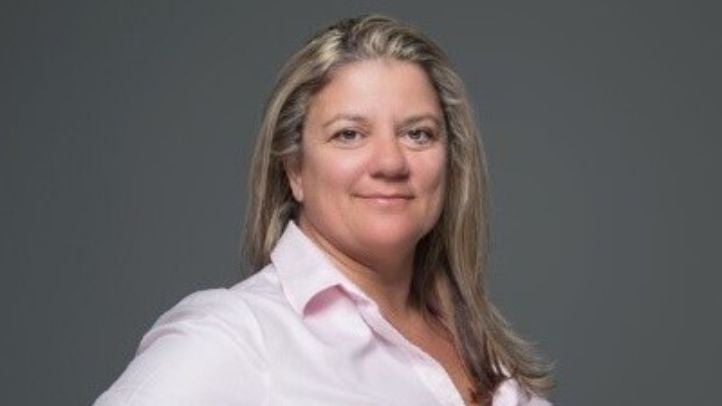
In our latest Diversity Champion interview, we speak to Tasja Botha, CEO at VAKT. Tasja's journey from a mainframe computer programmer in the 1990s to her current role as CEO showcases her evolution from managing intricate projects in FX trading to leading global sales initiatives and eventually stepping into the role of a standalone business leader. Discover more about Tasja’s journey and insights on driving positive change in the corporate landscape.
HC Group: Can you tell us about your career path that led you to your current role as CEO of VAKT?
Tasja Botha: I began in the 1990s as a mainframe computer programmer. However, I quickly discovered that my passion lay more in interacting with people rather than machines. So, I moved swiftly from there and into a project management role at a software company. As the Internet began to take off, the industry shifted its focus towards online technology. This shift was especially critical for traders, particularly in the fast-paced world of FX trading. I made a lateral move into this area, managing intricate projects with notable clients such as CME and ICE.
Recognizing my acumen for commercial matters, I then delved into account management and used my relationship-building skills to my advantage. This opened up opportunities for me to move into new business ventures, which required a solid understanding of the industry's ecosystem and its key players. From there, I assumed leadership roles, spearheading global sales initiatives and overseeing aspects like managing P&L, all of which enriched my experience.
This journey eventually led me to head a business unit, setting the stage for me to step up as a standalone business leader. Drawing on my diverse experiences in the software industry, I was able to take on the role of CEO.
HC Group: As CEO, what primary objectives or key areas of focus are you emphasising to drive the company's growth and innovation?
TB: One crucial aspect for me is alignment across the organization, ensuring everyone is working towards the same key performance indicators (KPIs). From engineering to sales, it's vital that each department understands its impact on meeting these KPIs and is aligned in the company's direction.
Regular measurement and monitoring of these KPIs are essential; it's not just about setting them but also tracking progress daily, weekly, and monthly. This consistent monitoring helps everyone stay focused and maintain a unified direction, minimizing distractions and ensuring progress towards our goals. Ultimately, this approach also ties into rewarding employees with bonuses, fostering motivation and engagement across the company.
To speak to our Commodity Tecnology team, please contact:
HC Group: With an impressive track record spanning over 25 years, what would you attribute your success to?
TB: I had to think long and hard about this question. I think the key thing for me is that I played sport at a very high level, which instilled in me two critical qualities: discipline and goal orientation. This competitive environment taught me the importance of setting and surpassing personal bests, fostering a disciplined work ethic and a relentless focus on improvement. Translating these qualities into the business world, I approach my endeavors with a clear focus on goals. What are the goals? What do we need to do to achieve them? I’m also very disciplined when it comes to executing them.
I have also benefited greatly from seeking guidance from mentors throughout my career journey. Learning from those who have walked similar paths before me has provided valuable insights and helped me navigate challenges more effectively. I am not the first person on this journey. There are lots of other people out there and I made sure to listen to them, to understand what worked for them and what didn’t. I’ve always made sure that I’ve had key mentors along the way. I had a mentor at the beginning of my career who moved me from project management into sales. And then I moved onto another mentor who could help me develop to the next level. You need to acknowledge that growth often requires you to find a new mentor to offer fresh perspectives.
Learning from those who have walked similar paths before me has provided valuable insights and helped me navigate challenges more effectively. I am not the first person on this journey. There are lots of other people out there and I made sure to listen to them, to understand what worked for them and what didn’t.
HC Group: Can you share a specific instance from your career where you encountered a significant challenge and how you effectively navigated through it?
TB: There have been a few instances, but one that stands out is when I was tasked with driving growth in a company that required additional investments on the product side, beyond what our current shareholders could provide. Instead of giving up or walking away, I chose to engage with the shareholders and present the option of bringing in another investor. By being proactive and exploring creative solutions, I was able to secure additional investment and align everyone involved towards a common goal. This experience taught me that when you think the door is shut, you just have to take a step back to be able to see other ideas.
Another challenge arose when I was brought in to replicate the success seen in America when it came to selling a product in the European market. Despite initial expectations, it became evident that the differences between the American and European banking systems posed significant obstacles. By conducting a thorough analysis and presenting the logical reasons behind the product's limitations in the European context, we were able to gain clarity and adjust our approach accordingly. You need to be able to analyse and explain what the problem is.
In navigating challenges, I believe discipline plays a crucial role. It helps structure your day-to-day activities. A lot of people have flare but they don’t necessarily have discipline behind what they’re doing. You may have the gift of the gab, but do you have the discipline to get that idea over the finish line?
In navigating challenges, I believe discipline plays a crucial role. It helps structure your day-to-day activities. A lot of people have flare, but they don’t necessarily have discipline behind what they’re doing. You may have the gift of the gab, but do you have the discipline to get that idea over the finish line?
HC Group: How has your understanding of diversity, equity, and inclusion evolved throughout your career, and how does it influence your leadership style and decision-making at VAKT?
TB: Diversity and inclusion have always been central to my experiences, given my background as a woman from South Africa working in London. I've encountered various forms of diversity challenges throughout my career, but I've learned to navigate them with resilience and adaptability. When faced with obstacles, I have chosen not to dwell on setbacks but rather find alternative paths forward, much like thinking outside the box in problem-solving situations.
At VAKT, we are fortunate to have a culture that values diversity and inclusion. Our global team reflects this ethos, with headquarters in London and development teams spanning across Lisbon and India. We prioritize inclusivity by ensuring that all voices are heard and respected, fostering an environment where employees feel empowered to contribute authentically.
In leadership, I emphasize providing equal opportunities for everyone to prove their worth, regardless of background or gender. I believe in supporting individuals to excel based on their merit and skills, nurturing a culture where diversity is not only welcomed but celebrated for the unique perspectives it brings. Flexibility is crucial, especially for working parents balancing career and family responsibilities. Recognizing the diverse challenges individuals face, I advocate for understanding and accommodating differing needs, promoting a supportive and inclusive work environment for all team members. While progress has been made, there is still work to do.
At HC Group we believe that inclusive organisations with diversity at all levels can deliver better performance.
Explore how HC Group’s Diversity Studies service can support your DE&I vision.
Fill in our Client Presentation Request Form to learn more.
HC Group: How do you approach navigating cultural differences to ensure effective collaboration among diverse teams and regions, especially within the context of VAKT's global operations?
TB: At VAKT, fostering an inclusive and collaborative environment is key to our success. We uphold a strong one-team culture where every individual, regardless of their location or background, is valued and considered an integral part of our journey. We want to break down silos. To facilitate effective collaboration, we align our teams to work within the same time zones, promoting better communication and workflow efficiency.
Respecting and acknowledging cultural differences is fundamental to our approach. We recognize and celebrate religious holidays and other cultural practices, creating an environment where everyone feels supported and included. Encouraging open communication, I try to engage in one-on-one conversations to understand each team member's perspective and ensure that their voices are heard and valued. Some people are shy, or they don’t like speaking in public forums and so I try to speak to them one on one to understand how they feel about what’s going on.
By crafting inclusive job descriptions, our aim is to not only attract a broad spectrum of talents but also cultivate a recruitment process that is fair and unbiased.
HC Group: How do you ensure alignment between overarching corporate goals and strategies for diversity, equity, and inclusion?
TB: When it comes to promoting diversity, equity, and inclusion within our corporate strategies, I focus on ensuring that our recruitment processes and job descriptions are crafted in a way that attracts a diverse pool of candidates. It's important to acknowledge the bias historically present in traditional job descriptions, often drafted from a male viewpoint. That's why I stress the significance of incorporating neutral language that resonates with individuals from diverse backgrounds. By crafting inclusive job descriptions, our aim is to not only attract a broad spectrum of talents but also cultivate a recruitment process that is fair and unbiased.
Also, I always want to be present in the final interview. I want to meet everybody and make sure they have the same values and the same goals as the company. That’s the most important thing to me now.
HC Group: What advice would you offer to aspiring leaders, especially regarding the promotion of equity, diversity, and inclusion within their respective industries?
TB: I’m not the kind of person that will stay at a company if I see there is a glass ceiling. Because all that will happen is you will become more and more despondent trying to break that glass ceiling and you’ll use up all of your energy. Everyone is much better suited to a company that gives you the opportunity to grow and lead. There are a lot of leadership roles out there, so I would advise aspiring leaders to seek them out and refuse to stay in one place. Every time I move, people say to me, “why are you moving?” and I’ll tell them that I’m looking for a change and that it’s time to move on. Don’t stay if you are not able to progress. Also, when I go through the interview process, I know exactly what I am looking for and that’s respect for me as an individual and trust in my ability to do the work.
By proactively seeking out environments that value your unique contributions and perspectives, you can move yourself towards leadership roles where your voice is heard, and your potential is fully realized.

